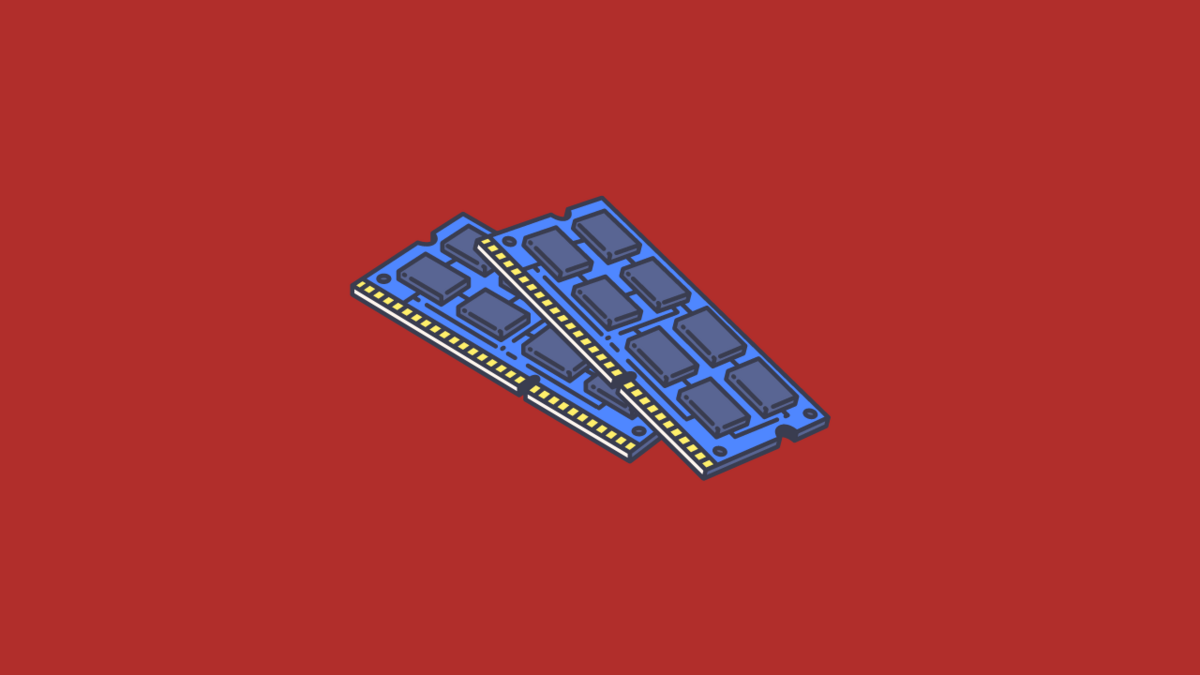Chip Crash

Hi ZipLawyer! I'm Ludo Lugnani and this is ZipLaw: an independent newsletter covering the best commercial and legal news from the day. We explain how each story impacts law firms and their clients so that you can stand out in interviews and applications and develop your Commercial Awareness!
Today's newsletter is a 7 min read:
- 🖥️ Chip Crash: Why is the chip industry crashing?
- ➕ Plus: US concerns over nuclear arms, UK strikes continue, Adani Group troubles and India teams up with US on tech initiatives.
🤿 Deep Dive
Chip Crash
In brief:
- The chip industry is struggling due to a slowdown in orders caused by global uncertainty, supply chain issues and record inflation.
It feels like yesterday that we were writing about the huge revenues that microchip makers were bringing in off the back of the rise in remote working and tech spending. Fast forward to today, and the $160 billion industry is facing one of its worst slumps yet.
Why is this happening?
The industry's rapid decline can be attributed to a combination of factors. These include the ongoing issues from the pandemic, the war in Ukraine, rising inflation, and supply-chain disruptions.
All combined, these events have resulted in a much more severe slump than regular cyclical downturns.
And if that wasn't enough, consumers and businesses are currently holding off on big purchases due to inflation and rising interest rates. As a result, producers are left with a huge pile of components and chips they can't sell.
- Loss Making: At the moment, Samsung and its competitors are losing money on every chip they produce, with collective operating losses projected to hit a record $5 billion this year.
Time for losses
Memory chip producers such as Samsung, Micron, and SK Hynix are expected to face record losses this year, with operating losses projected to reach $5 billion.
The companies are losing money on every chip they produce, and the industry's inventory levels have reached three to four months' worth of supply. Micron, the last remaining US memory chipmaker, has responded to the plummeting demand by cutting its budget for new plants and equipment and reducing output. Meanwhile, Hynix has also scaled back output and slashed investments.
How does this Impact Law Firms and their Clients?
💼 What does this mean for law firm's clients?
Chip producers
- How are they affected? The memory-chip sector crisis has been severely impacted by a growing supply of chips they can't get rid of due to a slowdown in demand. This is leading to massive losses for these companies. Their collective operating losses are projected to hit a record $5 billion this year. That’s especially true for so-called DRAM chips, where the three dominant suppliers — Samsung, Hynix and Micron — are reducing supply. The other major part of the memory market, NAND chips, is more fragmented and is set to go through a tougher battle as the many contenders fight for survival, and undercut each other to get there.
Suppliers
- How are they affected? The crisis in the memory-chip sector has destabilized the suppliers of these industry leaders. The reduction in demand for memory chips has led to a reduction in orders for chip-manufacturing equipment makers, such as Lam Research which counts Samsung, SK Hynix and Micron as its top customers. The suppliers of these companies are also facing losses as a result of the slump in the industry.
Chip customers (e.g. Tech companies)
- How are they affected? Tech producers who need chips for devices such as phones or computers will be taking steps to decrease demand for chips due to a slowdown in their own orders from customers. They may need to double-check any contracts they entered for the supply of chips to confirm any minim-quantity order requirements, and eventual termination rights if needed to cut their costs in the current economic slowdown.
Asian Economies
- How are they affected? The reduction in demand for memory chips and the resulting losses for industry leaders and suppliers have had a negative impact on these economies. China’s recent exit from Covid-related restrictions could be one catalyst to help the industry, as gadget makers will be able to bring manufacturing plants back to a normal rhythm. Overall, a slowdown in production and profitability of the chip industry is bad news for these economies as they heavily rely on them to employ people, and generate money.
⚖ Which legal departments would this impact?
Corporate
- Who they would advise? Companies in the memory-chip sector such as SK Hynix Inc. and Micron, and any external investors.
- What they would advise on? The current industry slowdown will force some of these chip producers to form alliances, sales or mergers as one way to survive and boost their market share. Corporate lawyers would advise companies on these procedures including due diligence, negotiation of terms, and preparation of contracts and purchase agreements. Many of these producers are also publicly listed companies which adds a layer of complexity when dealing with public shareholders, and takeover rules in each jurisdiction.
Bankruptcy and Restructuring
- Who they would advise? Companies in the memory-chip sector, and any interested investors looking to acquire companies in financial difficulties.
- What they would advise on? Companies in the sector may be facing financial difficulties, leading to bankruptcy or restructuring. These lawyers would advise companies on any necessary insolvency proceedings, including the preparation of bankruptcy petitions, representation in court proceedings, and negotiating with creditors and other stakeholders. They may also be required to register charges over their assets for loans to support their business during this tough period, or to negotiate a pre-pack administration sale of the company's assets prior to the appointment of an insolvency practitioner.
Intellectual Property
- Who they would advise? Companies in the memory-chip sector,
- What they would advise on? Companies in the memory-chip sector will need to continue protecting their intellectual property as it is crucial to the success of their business. From the production process to the design of their chips, these companies are heavily reliant on IP rights. This will become even more important in attracting external investment and fighting off competition from rivals in a declining market. IP lawyers would advise companies in the memory-chip sector on the protection and enforcement of their intellectual property rights, including patents, trademarks, and copyrights.
Litigation
- Who they would advise? Companies in the memory-chip sector, their suppliers and customers.
- What they would advise on? Companies in the memory-chip sector may face disputes with customers, suppliers, and competitors in this complicated phase of the market. Customers may want to terminate contracts for the supply of chips, and suppliers may look to vary prices and rights in their contracts for the supply of chip-making materials. They would advise companies in the memory-chip sector on the legal aspects of disputes, including preparation of court pleadings, representation in court proceedings, and negotiation of settlements.
🔮 What trends does this highlight?
This is a really tough period for chip producers, especially for the smaller and more specialised ones who heavily rely on chips for their profitability. Seeing the continued decrease in customer demand (from both individuals and businesses) for electronics due to the rising cost of living, and economic uncertainty, it is likely we will see this trend continue.
The problems these companies are facing now will probably ripple through for years. It’s always been difficult for memory makers to handle spikes and troughs in demand. Bringing new factories online takes years and billions of dollars, so it’s hard to get the timing right. The risks have prompted companies in the industry to get more conservative. They’re more focused on profitability than trying to grow quickly and gain market share. Cutting back now could mean losing a big chunk of market share in 3 to 5 years due to a lack of innovation. Definitely something worth noting, but they may be unable to avoid it.
📰 News Spotlight
🇷🇺 Nuclear Arms treaty
- The US has raised concerns that Russia is not following the New START treaty, which controls the two countries' nuclear arms. Russia has stopped inspections and backed out of talks, causing fears that the treaty won't be extended when it expires in 2026. Meanwhile, the US plans to send more aid to Ukraine, including possible long-range rockets, to fight against Russia's attacks.
🤝US and India team-up
- The two countries are working together to limit China's growing power in the Indo-Pacific region, the US and India have partnered up on defence and tech initiatives, such as AI, semiconductors, and weapons production. The US also wants to decrease India's reliance on Russian weapons.
💸Adani Group Troubles
- The Adani Group, a large Indian company that spans across industries, saw its shares drop again after being called out as a "giant con" by a short-seller. Despite raising $2.5 billion in a recent share offering, investors remain sceptical and the company has lost $84 billion in market value.
🇬🇧 Strike time
The biggest strike in the UK in over a decade has begun with teachers, civil servants, train drivers, and university lecturers walking out. Around 500,000 workers are participating, causing "significant disruption" according to the government, and closing many schools. More strikes are expected from health workers and firefighters soon.






